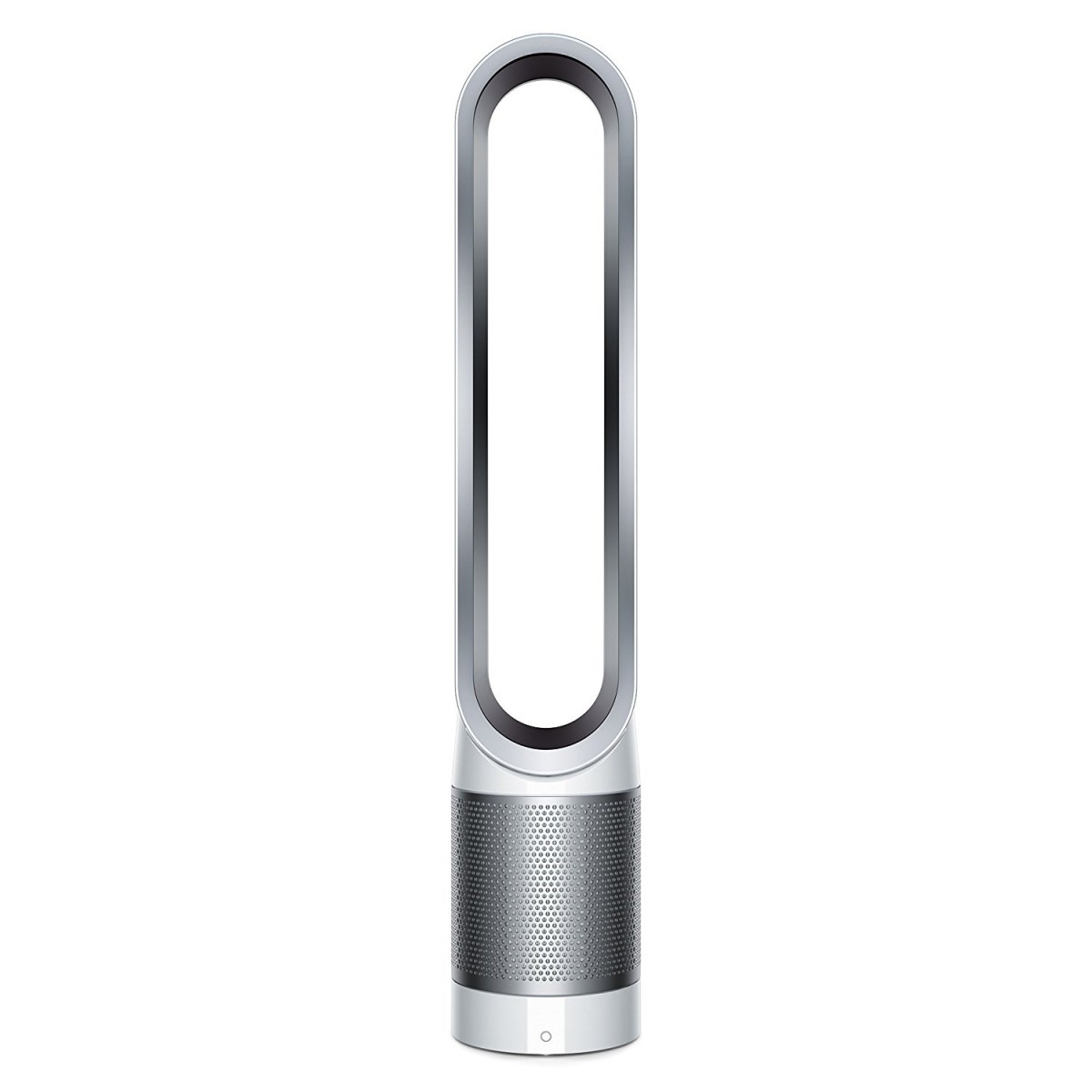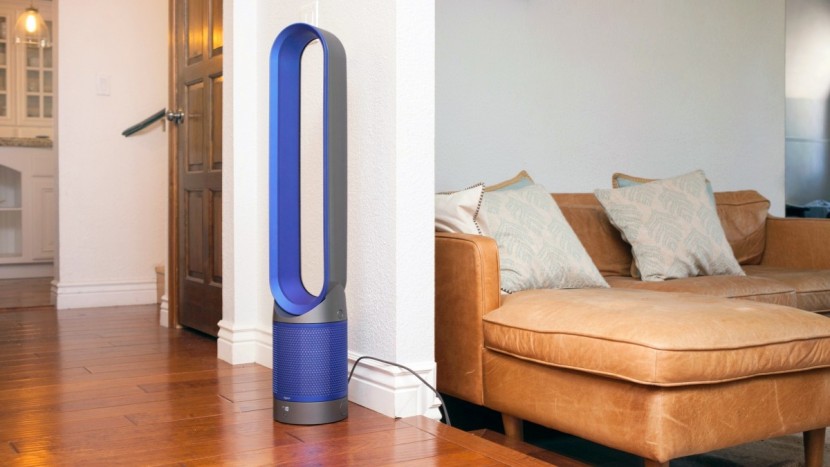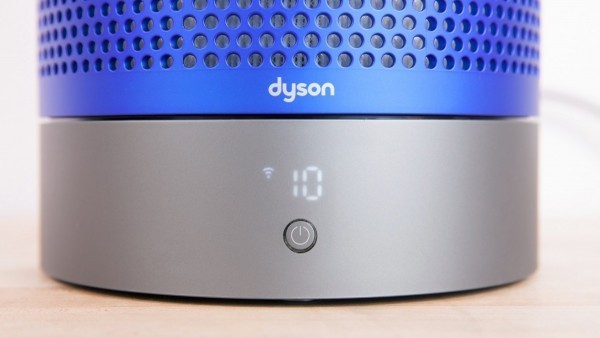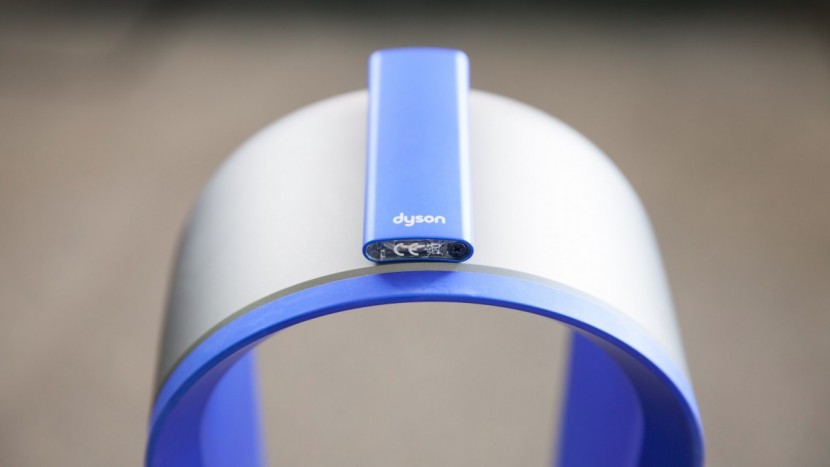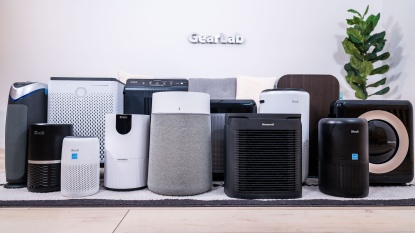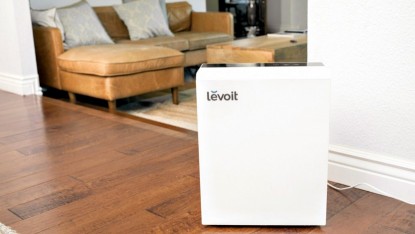Dyson Pure Cool Link Review
Our Verdict
Our Analysis and Test Results
Air Cleaning Performance
The Pure Cool Link stayed just out of the basement of our air cleaning performance. If you divide the Pure Cool Link up by volume, it is about 80% fan and 20% purifier, and that is exactly how it performs. The fan is incredibly powerful. We could still feel its pleasant breeze from 20 feet away, and it will certainly circulate more air than any of the other purifiers we tested. It also creates a low hum, a much more pleasant sound than the whine of a traditional fan.
The actual filter unit, however, is quite small. Dyson doesn't give a specific CADR (clean air delivery rate) spec, but after chatting with a number of Dyson representatives, we were able to calculate it ourselves. It came out to 70, which means the purifier size is ideal for rooms of 105 square feet or less. Putting a fan that can blast 20 feet in a 105 square foot room does slightly seem like overkill.
After an hour, it had removed only 97.09% of airborne particulates from our testing room. This is only better than the compact models we tested, whereas all of the comparably sized and priced models broke the 99% mark by a healthy margin. So what is the Pure Cool Link's ideal use? If you want to put a powerful fan next to a window that you occasionally open and want something that can deal with some small amounts of pollen that might drift in, this model can handle it.
Noise
Unlike most models that have 3-4 fan speeds, the Pur Cool Link has 10. On its lowest fan setting, it is virtually silent. Set it on five, and it produces a low humming sound that is noticeable but can easily blend into the background. If you ramp it up to 10, it is incredibly loud for an air purifier. However, it's fairly quiet for a large fan that can shoot air 20 feet. On its highest setting, the fan produces a medium-pitched hum akin to what you'd hear in the cabin of a 747, much better than the whine created by most large fans.
Ease of Use
It has a clear, simple interface that lets you cycle through its 10 fan speeds. It also has a nine hour off timer, and you can choose whether or not the fan rotates or stays stationary. All of these controls are also on a remote control, so if the fan is disrupting your reading time, you can turn it off without even getting up. Despite its size, the whole unit is only 8.1 pounds and easy to move around; the only downside is that the remote is tiny and easy to lose. If you do lose it, you're stuck with only the on/off button on the unit itself. The remote does connect to the top of the fan with a magnet, but that magnet is weak, and the remote can easily fall off.
Operating Cost
The Pure Cool Link is the most expensive model we tested. That alone skyrocketed its estimated lifetime cost to $889, the second-highest of any of the models we tested. Even economical electricity usage (0.015 kWh/hour of operation or roughly $7.88/year) and cheap filters that cost only $70 per year could not save it from earning a spot on the most expensive podium.
Value
Dyson is a company that is known for delivering high performance at a premium price. Unfortunately, if you look at the Pure Cool Link as an air purifier, it carries that premium price without premium performance, making it quite a poor value. However, it is one of the best fans you can buy and it makes the air a bit cleaner.
Conclusion
The Dyson Pure Cool Link is first and foremost a fan. If air circulation is first on your list and air purification is second, this is a great model. As an air purifier, it is decidedly mediocre. If you're looking to kill two birds with one stone, this is a decent option, but if you're after a true air purifier, you will want to look elsewhere.


